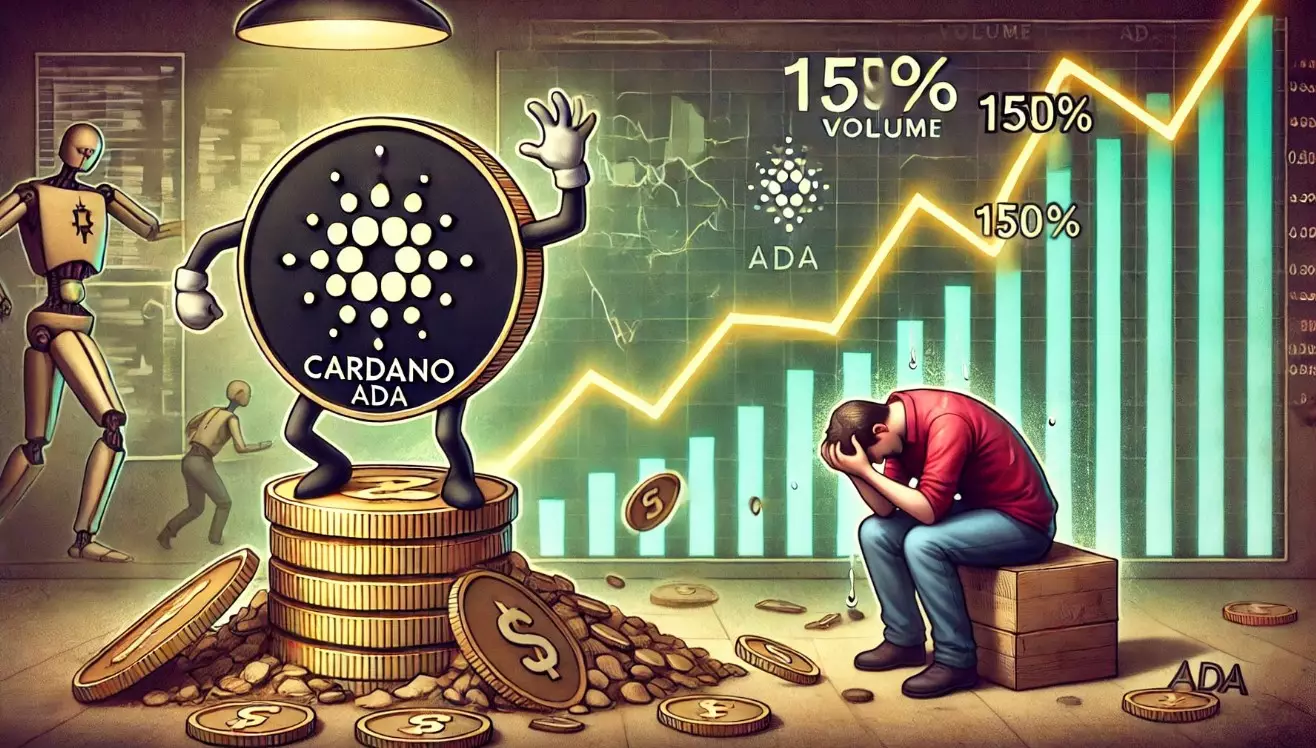In the ever-evolving landscape of cryptocurrencies, few projects have generated as much discussion as Cardano (ADA). With the recent Chang hard fork upgrade implemented in September, Cardano has positioned itself as a formidable contender within the blockchain ecosystem. Its founder, Charles Hoskinson, known for co-founding Ethereum (ETH), has taken a notably assertive stance regarding Cardano’s capabilities and future prospects, particularly in comparison to other well-established cryptocurrencies like Bitcoin (BTC).
The Chang hard fork is hailed as a groundbreaking moment for the Cardano network, introducing a significant upgrade designed to enhance its governance and decentralization. This technical advancement allows for improved interactions between the network’s components and its community, ensuring that development remains vibrant and adaptive in the long term. This shift is particularly noteworthy in light of concerns surrounding the centralization often observed in other major blockchain platforms. Hoskinson has vocally criticized such structures, suggesting that Cardano’s model reduces power concentration among a few individuals or teams, thereby promoting broader community involvement.
In his robust defense of Cardano, Hoskinson contends that its new governance model fosters an environment where innovation can thrive without dependency on any individual leader, contrasting starkly with Ethereum’s reliance on the vision and direction of Vitalik Buterin. By reshaping how decisions are made within the ecosystem, the Chang upgrade empowers delegated representatives (DReps) to take an active role in the governance process, ensuring that the network is not hindered by the absences or actions of its founder.
Decentralization and Community Engagement
Decentralization has been a buzzword in the cryptocurrency world, yet the interpretation and implementation of this principle can vary significantly among different platforms. Cardano’s approach post-Chang hard fork emphasizes a participatory governance structure that seeks to reflect diverse perspectives within its community. The DReps, who now possess the capacity to vote and interact within the governance framework, represent a significant shift toward a more inclusive model. This focus on community engagement has placed Cardano in a unique position to cultivate a healthy, dynamic ecosystem—one that Hoskinson proudly asserts is “still number one.”
The extensive metrics attributable to Cardano’s development further bolster Hoskinson’s claims. Over the past seven years, the network has recorded over 74,000 Plutus scripts and facilitated the creation of 1.3 million delegated wallets. Additionally, the launch of approximately 1,373 projects speaks to an active and innovative environment. These statistics not only showcase the network’s growth but also the potential value it brings to developers and users alike, allowing for a rich variety of applications and functionalities to emerge.
Looking ahead, Cardano’s trajectory seems firmly aimed at achieving even greater autonomy and sustainability. A critical step in this evolutionary journey is the transition away from its initial genesis keys, which have long been crucial for network management. By engaging an even larger community of stake pool operators (SPOs) and further developing the role of DReps, Cardano intends to build a robust Constitutional Committee (CC).
This foundational change underscores the importance of operational independence within Cardano’s ecosystem. As it advances toward a fully decentralized governance model, the emphasis on meeting operational thresholds becomes essential. With decentralized applications (DApps) nearing completion, the network is poised to enter a new era—nicknamed the Voltaire era—marked by a self-sustaining blockchain.
While enthusiasm for these advancements is palpable, specifics regarding the timeline and implementation details remain under wraps. This level of anticipation mirrors the larger narrative surrounding cryptocurrencies, where innovation and speculation frequently intertwine. As whispers of an additional hard fork loom with the final use of the Genesis keys, stakeholders within the Cardano community await further announcements with keen interest.
The recent developments surrounding Cardano, particularly the Chang hard fork, highlight the project’s commitment to decentralization and community involvement. With Hoskinson at the helm, the blockchain’s narrative has shifted toward inclusivity, positioning itself as a potential leader in the crypto space. As Cardano continues to evolve, its ability to foster innovation while empowering its community will be crucial, solidifying its reputation amidst a competitive landscape that has yet to fully realize the promises of decentralization.















